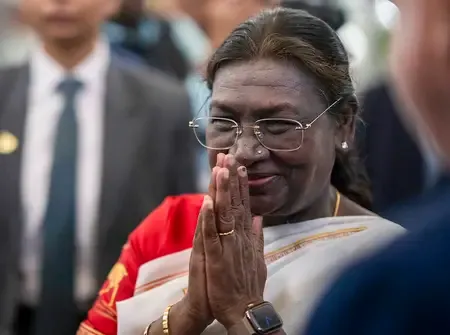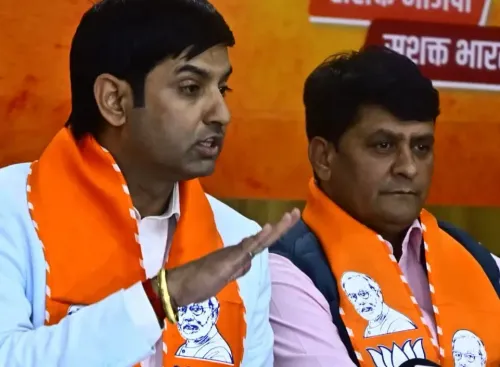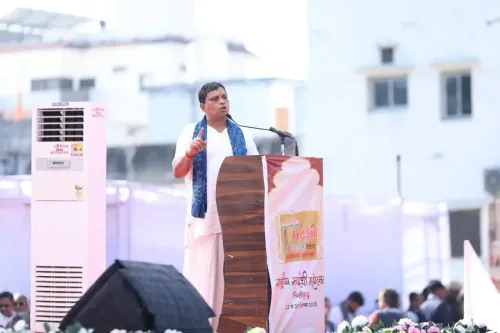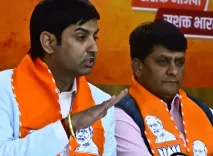Ex-SC Judge Ajay Rastogi: Constitution's Silence on Presidential Assent Timing

Synopsis
Key Takeaways
- The Constitution does not define a timeframe for presidential assent.
- Article 200 expects governors to act 'as soon as possible'.
- Justice Rastogi advocates for deeper analysis of constitutional provisions.
- The Supreme Court's Tamil Nadu verdict raises important questions.
- Critics argue the ruling subjects presidential actions to judicial review.
New Delhi, April 19 (NationPress) The President serves as the highest constitutional authority, and the framers of the Constitution have not specified any timeframe regarding the assent to a bill, stated former Supreme Court judge Ajay Rastogi on Saturday. He emphasized the necessity for a more comprehensive analysis of Article 200, which mandates that Governors should approve bills 'as soon as possible'.
Advocating for a constructive discussion on the Supreme Court’s ruling concerning the delay of Tamil Nadu bills, Justice Rastogi remarked to IANS: "I believe the Constitution framers were aware, specifically for governors… not for the President. It is expected that every constitutional entity will use its authority promptly and adhere to the Constitution's mandates, yet they still mentioned 'as soon as possible' without imposing a specific deadline."
“What prompted the Constitution framers to use 'as soon as possible' for governors?” queried Justice Rastogi, noting that the intent and significance of the framers' choice must be understood and honored.
His comments are particularly relevant in light of the ongoing discussion triggered by the SC ruling on Tamil Nadu bills, which raises the issue of whether the Supreme Court can appropriately impose a three-month limit for the President's assent to bills forwarded by the legislature.
Critics have claimed that this ruling has subjected even the actions of the President, the highest constitutional authority, to judicial scrutiny and established a deadline for their decision-making.
In response to critical remarks regarding the Supreme Court’s decision in the Tamil Nadu case, Justice Rastogi indicated the importance of reflecting on why the Constitution framers stipulated that Governors could decide on bills 'as soon as possible'.
He suggested that the framers might have believed there was no need to elaborate on the President's decision-making process, unlike for Governors.
Addressing the three-month timeframe mandated by the Supreme Court for bill approval, Justice Rastogi noted that the ruling is publicly accessible. "Let the public share their opinions, and if the court deems it necessary, it may provide further clarification," he added.
In the Tamil Nadu situation, a Supreme Court Bench consisting of Justices J.B. Pardiwala and R. Mahadevan recently overturned Governor R.N. Ravi’s choice to withhold assent from 10 pending bills.
While resolving the Tamil Nadu deadlock favorably for the DMK-led state government, Justices Pardiwala and Mahadevan exercised the court’s inherent powers under Article 142 of the Constitution to declare that the 10 withheld bills were considered assented as of the date they were presented to the Governor after being reconsidered by the State legislature on November 18, 2023.










